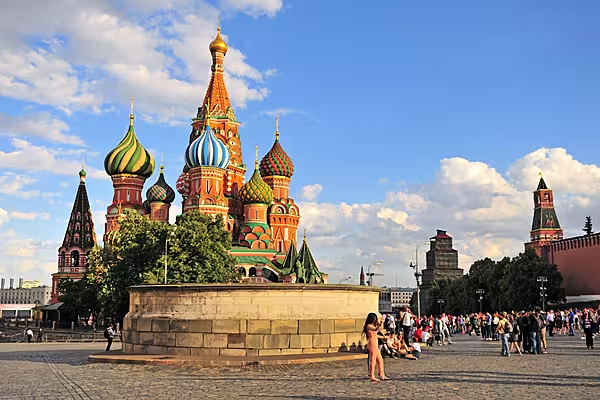Lloyd's of London is in talks with the United Nations over providing insurance cover for Ukrainian grain shipments if a new Black Sea corridor deal can be reached, its CEO John Neal told Reuters.
NATO member Türkiye is seeking to convince Russia to return to the so-called UN-brokered Black Sea Grain Initiative after Moscow withdrew in July, ending a year of protected exports from Ukrainian ports amid the war.
"Are we happy and able to continue to provide insurances in the event that a corridor can be re-operated and can be re-established? The answer to that is yes," Neal told Reuters in an interview.
"We are in active discussions with the UN about how that might happen," Neal said, adding that those conversations included the possibility that cover may need to be structured differently than before.
Securing insurance cover is crucial for shipments leaving Ukraine.
"Absent UN intervention and UN clearance, we would not sanction the insurance," Neal said.
The Lloyd's market estimated loss, net of reinsurance, from the Ukraine conflict was £1.4 billion (€1.6 billion), he added.
Neal added that the Lloyd’s market was also prepared to offer support to players active in the Ukrainian domestic insurance sector.
"We are having conversations with those on the ground – what can we do to help you and support you? Do you need reinsurance, do you need capacity?"
Grain Corridor
Insurer Beazley had covered ships in the grain corridor and also in the separate humanitarian channel that Ukraine has set up in recent weeks to enable ships stuck in Ukraine to leave, its CEO Adrian Cox told Reuters separately.
"We're in that market to provide the insurance that's required for these vessels to start moving," Cox added.
Lloyd's asked its members in January to identify potential exposure to so-called realistic disaster scenarios related to potential conflict in Taiwan in insurance classes including marine, aviation and political risk, Reuters reported in August.
Neal said Lloyd's had completed the survey, adding that there was "no anxiety about the exercise".
"It is manageable," he said, referring to any exposure.
"The interests directly in terms of Taiwan are less than 1%. It's not a country in which we would be active in providing insurances. The complications are supply-chain related."
Beazley's Cox said the insurer had also been scenario planning around conflict in Taiwan, but added that it was "comfortable" about its exposure there.














